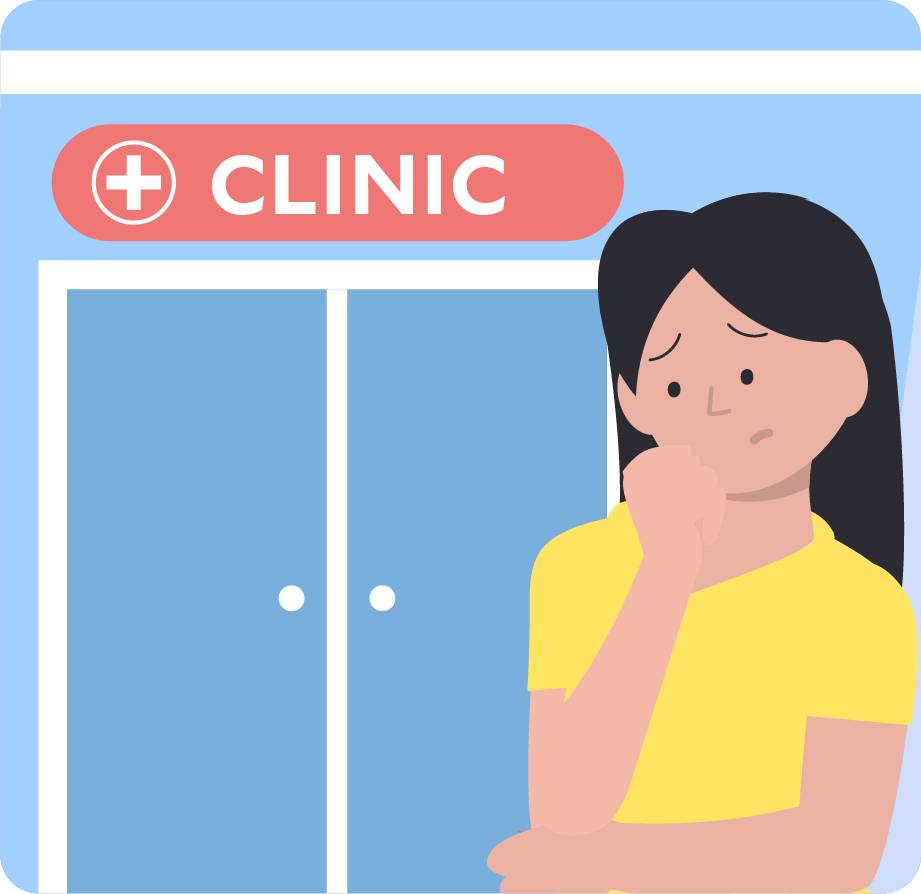Content warning: This article contains details regarding eating disorders.
Do you think a lot about food, your body, and your weight? Do you set a lot of extreme rules for yourself when it comes to meal timing and food choices? How many times have you followed and abandoned a popular diet? Studies have shown that the pandemic brought a significant rise in new cases (especially for adolescents) of eating disorders due to the accessibility of food during quarantine, social media, extreme stress, life transitions, exacerbated by social influence, environment, genes, past trauma, history of disordered eating behaviors and other mental issues.
Disordered eating behaviors such as extreme dieting, following strict eating patterns, avoiding the most important nutrients or food groups and compulsive exercising can lead to diagnosed eating disorders such as anorexia (characterized by significantly low body weight due to intense food restriction), bulimia (characterized by a cycle of binge eating and purging or vomiting) and binge eating (characterized by frequently consuming a large amount of in a short amount of time).
You might be manifesting some behaviors mentioned or even know some people who are dealing with this problem. Prevent the progression of this behavior before it develops into a serious illness by being more aware of your thoughts, emotions, and body through fixing your relationship with food while enjoying the process of lifestyle change to maximize your potential and live longer.
Consult mental health professionals specializing in eating disorders if the warning signs are becoming more intense and harder to control.
What happens to your body when you have an eating disorder?
Hormonal imbalance
Skipping meals and extreme food restrictions can greatly affect one’s hormones, causing irregular menstrual cycles, mood swings, infertility, and extreme stress. In addition, abnormal levels of hunger hormones (responsible for fullness and satiety and preventing overeating) such as ghrelin, leptin, and cholecystokinin as a result of disordered eating can disrupt the balance of the body, which becomes a major trigger in ‘binge’ episodes and feeling hungry all the time.
Low energy
Excessive dieting can affect your energy, productivity, and performance. Eating less than 1,000 calories a day (with or without exercise) won’t be effective in helping you achieve your most important tasks (work, connecting with people, gaining knowledge, accomplishing tasks at work and at home, and improving your health and lifestyle) for the whole day.
Food and weight obsession
Obsession about weight and food stems from habits like food restriction and regularly stepping on the scale. This can lead to diet-binge episodes, making you feel powerless when it comes to controlling eating.
Low self-esteem
Experiencing the repetitive process of the diet-binge cycle brought about by food deprivation is mentally and emotionally stressful. Also, believing that you lack control and willpower when it comes to eating and/or comparing yourself with others, how they look and what they eat in order to achieve their dream bodies, can negatively affect your emotions and how you perceive yourself (and your body).
How to develop a healthy and happy relationship with food?
Fad diets have implied the great need to follow eating rules, restrict certain food groups, and to avoid types of food to achieve weight loss. But people should be educated more about proper nourishment, how to make eating a more positive experience and how to be more aware of one’s body to achieve long-lasting results in terms of weight and health.
Through the years, I’ve practiced and preached principles (not rules) and ways on how to make each and every eating experience positive, how to enjoy foods and how to honor the body by giving the proper nourishment it needs.
Enjoy the overall process of eating
- Enrich your relationship with food by being fully involved in the process of planning recipes, shopping your ingredients, and preparing your meals.
- Enhance the flavor of your meals by adding herbs and spices such as ginger, mint, cilantro, lemongrass, chives, basil, cumin, and turmeric.
- Make the act of eating pleasurable by slowly savoring the taste while you chew and feel the texture of food inside your mouth.
- Appreciate the overall positive eating experience with your loved ones as you connect and strengthen your relationship with them.
- Take a moment to express gratitude before and after each meal by closing your eyes and praying for the blessings you are receiving.
Be mindful of your eating and recognize how your body responds to food
- Listen to your body – eat when you are hungry and when you feel weak. Food is a basic necessity. Don’t restrict yourself from the nourishment and energy your body needs.
- Pay attention to how much you eat and know when is the right time to stop. You can use a hunger scale (1 feeling famished and 10 fully stuffed, that feeling after eating a buffet) and stop eating when you’re already in between 6- 8.
- Instead of researching a lot about fad diets, give more time to learning about yourself and your body by observing and analyzing why you eat (hunger, craving, boredom, stress, or happiness) and how your body responds to food, whether you are satisfied, energized or maybe eating a particular food such as pastries or pizza can even make you crave for more. Start your journal and you’ll discover a lot about yourself.
Practice proven nutritional strategies that can break the cycle of overeating
- Do not skip meals. If a fasting diet will just trigger overeating and/or will make you weak during the day, then it’s not for you.
- Avoid eliminating a food group from your meals such as following a zero carb or zero fat diet. Always combine healthy fat, protein, and fiber from good carbs when eating a snack or a meal.
- Eat foods that regulate blood sugar levels such as nuts, eggs, oats, cheese, avocado, fish, chicken, and quinoa, so you can avoid cravings and hunger pangs during the day.
Appreciate how the food nourishes your body
- Realize that aside from getting enough rest and sleep, carbohydrates, proteins, and fats provide you with calories to give you the much-needed energy for your workouts and day-to-day tasks.
- Sit down, breathe, relax and feel what’s happening inside and outside your body. The right amount and quality of foods that you eat can balance your hormones and can boost your mood.
- Be grateful for the type of radiance and energy that you have because of the nourishment that you get from food. You are healthy. Your metabolism is high. You have the freedom to do so many things because you are well, alive, and strong.
Avoid dieting and be flexible with your eating
- Always remind yourself that you eat to improve or maintain your well-being, health, energy, and metabolism.
- Be in control of the food and don’t let fad diets or food restriction strategies rule your life. You can create your own meals that are unique to your lifestyle, personality, and goals.
- Avoid dieting or fasting and giving yourself too many rules (no eating after 6 pm, no carbs or eating only doing the 8-hour window) that can often lead to binge eating (overeating).
- Allow yourself to experience relaxed eating and treat yourself to your favorite foods in moderation without the guilt especially when you travel, on special occasions, or on some days of the week when you just feel like to.
- You might have slips or lapses with food. Tell yourself that it’s okay. Forgive yourself right away and move on.
Some people delay their health and fitness goals because they might have the perception that extreme workouts and dieting are the only solutions to weight control. But in fact, you can start getting results already by applying simple lifestyle change strategies. You don’t need to do fasting, perform high-intensity workouts right away and/or buy the most expensive healthy foods. You can still continue your usual lifestyle like eating out and socializing because, in reality, you can’t remove these pleasurable activities from your life – you just need to apply small changes for now. You don’t need to exercise daily. Just move, walk, or dance and you will feel better and more alive. You can still go to fast food restaurants when needed, but choose healthier alternatives like grilled instead of deep-fried chicken (or remove the skin) and drink more water than sodas. Start small and everything will follow.
Email the author at [email protected] or follow/message her on Instagram @mitchfelipemendoza









































